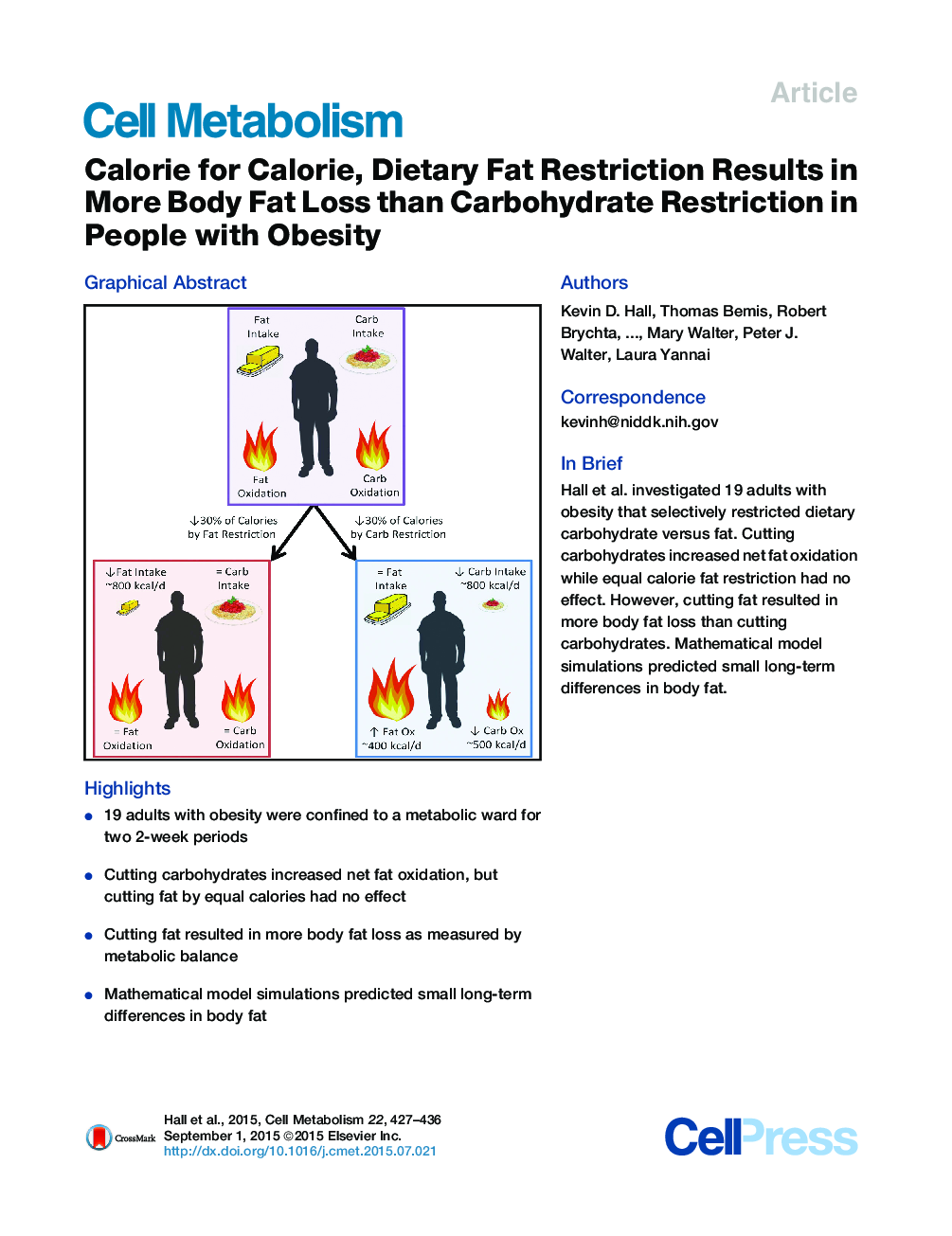| Article ID | Journal | Published Year | Pages | File Type |
|---|---|---|---|---|
| 2792462 | Cell Metabolism | 2015 | 10 Pages |
•19 adults with obesity were confined to a metabolic ward for two 2-week periods•Cutting carbohydrates increased net fat oxidation, but cutting fat by equal calories had no effect•Cutting fat resulted in more body fat loss as measured by metabolic balance•Mathematical model simulations predicted small long-term differences in body fat
SummaryDietary carbohydrate restriction has been purported to cause endocrine adaptations that promote body fat loss more than dietary fat restriction. We selectively restricted dietary carbohydrate versus fat for 6 days following a 5-day baseline diet in 19 adults with obesity confined to a metabolic ward where they exercised daily. Subjects received both isocaloric diets in random order during each of two inpatient stays. Body fat loss was calculated as the difference between daily fat intake and net fat oxidation measured while residing in a metabolic chamber. Whereas carbohydrate restriction led to sustained increases in fat oxidation and loss of 53 ± 6 g/day of body fat, fat oxidation was unchanged by fat restriction, leading to 89 ± 6 g/day of fat loss, and was significantly greater than carbohydrate restriction (p = 0.002). Mathematical model simulations agreed with these data, but predicted that the body acts to minimize body fat differences with prolonged isocaloric diets varying in carbohydrate and fat.
Graphical AbstractFigure optionsDownload full-size imageDownload high-quality image (184 K)Download as PowerPoint slide
